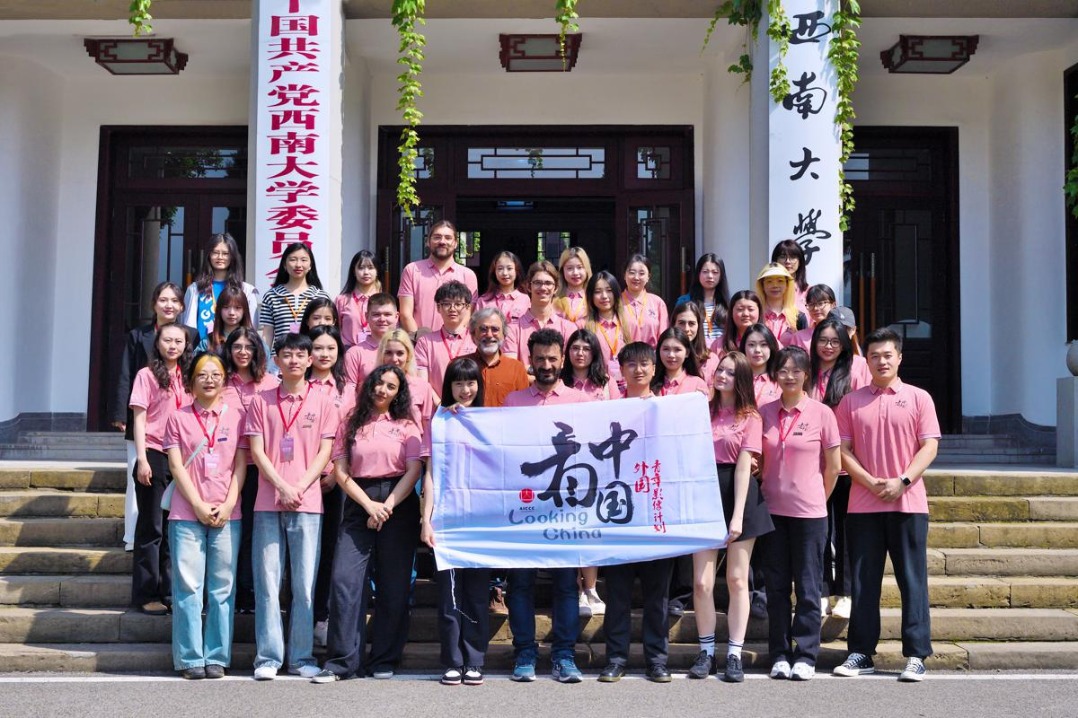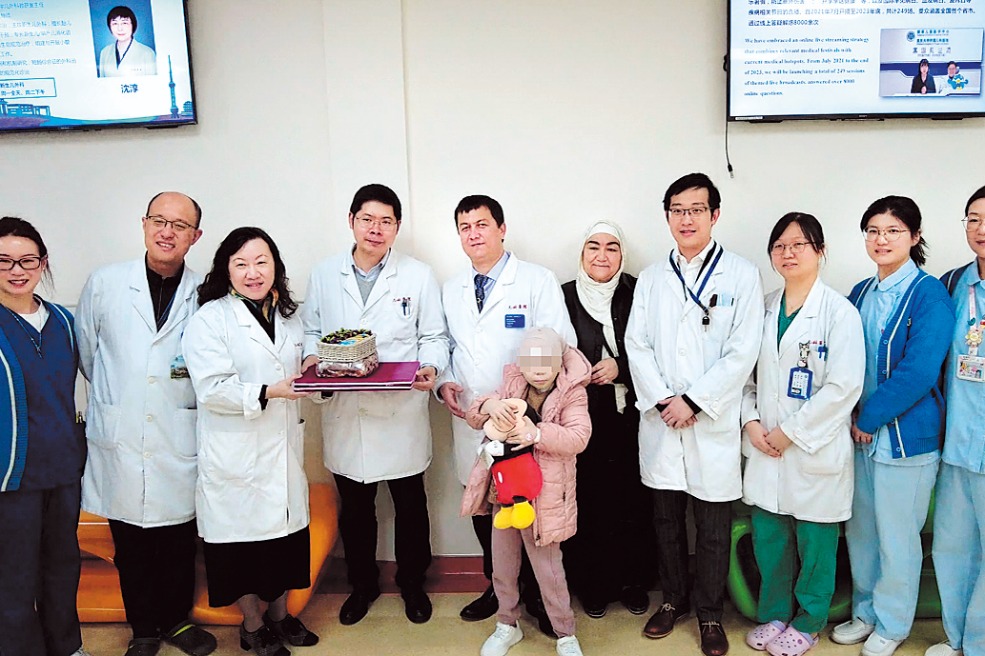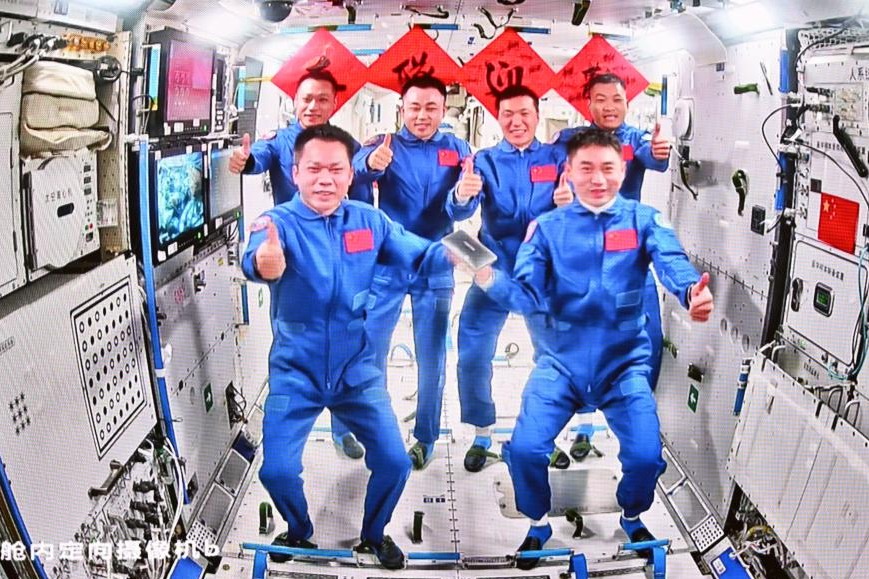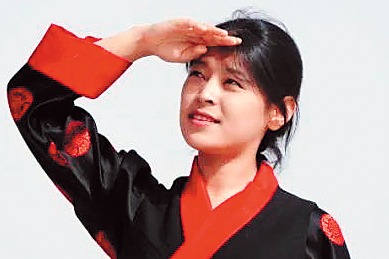On a high note

Over the past 40 years, the Hong Kong Composers' Guild has been helping local music composers earn their places in the global network of music professionals, besides encouraging them to push the boundaries of musical conventions in their works. Mariella Radaelli reports.
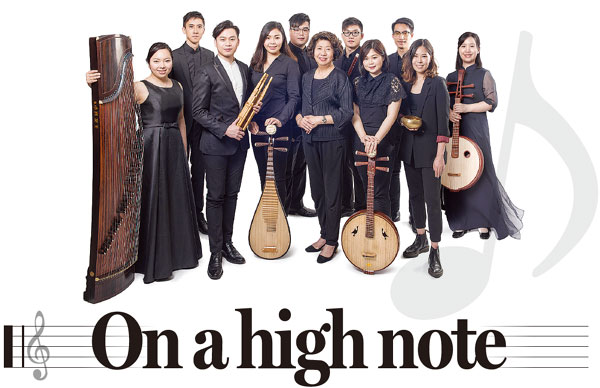
The Hong Kong Composers' Guild was founded in 1983. Since then, it has been diligently pursuing its goal of cultivating and promoting the art of music composition in Hong Kong. The organization's 40th anniversary is being marked with a series of celebratory concerts, including two in 2024.
Titled Transcending Music Legacy, the concert series is, as HKCG Vice-Chairman Leung Chi-hin puts it, aimed at applauding "a pivotal milestone, reflecting on four decades of nurturing talent, fostering an appreciation for contemporary music and enriching Hong Kong's unique music scene".
HKCG Chairman Mui Kwong-chiu points out that the word "transcending" in the series title refers to HKCG's "mission to honor the past, while making innovations for the future". It reflects the organization's dedication to look beyond musical conventions, he adds. Leung provides an example: "Some members may incorporate elements from genres other than the Western classical into their works, creating a fusion of sounds that reflect the multicultural and cosmopolitan character of Hong Kong."
Between them, the three celebratory concerts feature 26 pieces by both well-established and up-and-coming composers. The names include composer, academic and the HKCG's founding chairman, Richard Tsang, whose works have been performed widely, both in Hong Kong and overseas. There is also Law Wing-fai, whose music is inspired by Chinese calligraphy and painting and whom music historian Liang Maochun calls "one of the most active and representative Hong Kong composers" at present. Prolific composer and conductor Lo Hau-man, whose repertoire includes scores for TV, films, chamber music, orchestral music, opera, jingles and popular songs, also figures on the list.
Among the new works commissioned to mark the anniversary, Chan Ming-chi's GuanzizaiDunhuang, performed by the Hong Kong Gaudeamus Dunhuang Ensemble, will have its premiere next week.
Two of the three anniversary concerts feature a special tribute to maestro Doming Lam, who passed away at 96 in January 2023. Lam, whom The Grove Dictionary of Music and Musicians calls "the father of Hong Kong's new music", made his mark by experimenting with traditional Chinese melodies. In many of his works - The Insect World and Autumn Execution, for example - he brought about a synthesis of traditional Chinese instruments and modern technology, creating a new genre of contemporary music for Chinese orchestra in the process.
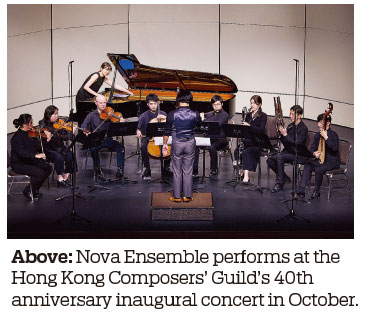
The golden '80s
The HKCG is the manifestation of maestro Lam's vision to nurture Hong Kong composers and help them secure global representation. He used to be the leader of the Hong Kong chapter of the Asian Composers League, but had begun to doubt if the organization could truly represent the unique interests of Hong Kong composers on the world stage.
In 1983, the time was propitious for the HKCG's founding. The city's composers were at their prolific best. According to the magazine Musica Docta, 180 works by Hong Kong composers and 20 original scores for films and theater were published between March 1981 and May 1986.
Because of its links with the International Society for Contemporary Music and the ACL, the HKCG was well positioned to reach out to an international network of music composers right from the outset.
Both Mui and Leung look back fondly on the 2007 ISCM-ACL World Music Days Hong Kong - a HKCG-hosted festival, founded by Lam. "It was a vibrant platform for remarkable, unexpected collaborations, marked by its blend of diverse media, instrumental combinations, and stylistic trends," Mui says.
An impressive 156 pieces by composers from Hong Kong and elsewhere were played at 24 concerts. "The intertwining of Eastern and Western musical traditions was one of the most striking features of the festival," Leung says. "The Hong Kong Chinese Orchestra concert featured a fascinating fusion of traditional Chinese instruments with contemporary composition techniques."
He remembers Law's A Thousand Sweeps composed for solo pipa in particular, and how the HKCO, which performed the piece, demonstrated a perfect coming together of the music traditions of the East and the West.
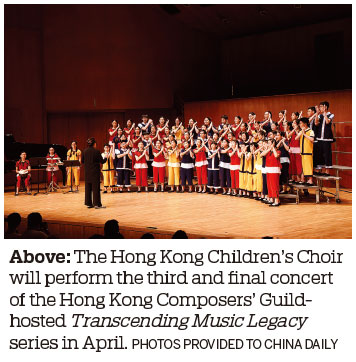
Bridging the gap
Today, the HKCG helps to connect Hong Kong composers with a worldwide network of music professionals. It collaborates with Radio Television Hong Kong to send a participant to the International Rostrum of Composers - an International Council of Music-hosted annual forum of broadcasting representatives to exchange new works of contemporary music.
The organization has a sustained record of helping composers with publishing their works and organizing events such as the annual Musicarama festival, the Hong Kong Contemporary Music Festival and Sound-Imagination - considered well-respected launch pads for new composers.
It also offers training programs for music teachers and helps to spread music awareness among young audiences through the Hong Kong Voices Project and Schools Creative Music Showcase.
Creative solutions
Among the promising new composers, the HKCG is particularly optimistic about the prospects of Chan Kai-young, whose new work, In a Word, specially commissioned to mark HKCG's 40th anniversary, and performed by the Hong Kong Children's Choir, will premiere in April.
Chan is especially interested in turning the constraints of setting Cantonese texts to music "into opportunities for innovation and artistic expression". "By embracing constraints, musicians can unlock new possibilities and expand the boundaries of what is musically achievable," he says. "This interplay between constraints and creativity catalyzes artistic growth, facilitating the emergence of unique musical experiences.
"Cantonese is a language with six distinct tones, and hence requires melodic writing to align with the speech contour in order to make sense," Chan explains. "I find this constraint intriguing and have embraced it as part of an algorithmic approach to generating materials to make music with."
The result of his efforts is a web application called the Cantonese Melody Generator, designed to make things easier for composers interested in setting Cantonese lyrics to tune.
David Gwilt, an honorary member of the HKCG, played a major role in setting up the Hong Kong Conservatory of Music. He points out that the HKCG offers a great deal of practical support to aspiring composers when it comes to pitching their projects. The vibrancy of the local music scene and the open-mindedness of the city's major orchestras - their willingness to give new and experimental works a chance - also helps.
Mui confirms Gwilt's view. "The Hong Kong Philharmonic Orchestra and the Hong Kong Chinese Orchestra have been actively commissioning and showcasing local composers' works - Chinese, Western classical and, increasingly, contemporary pieces. We have built up a rich portfolio of Hong Kong composers' works since the past four decades," he says.
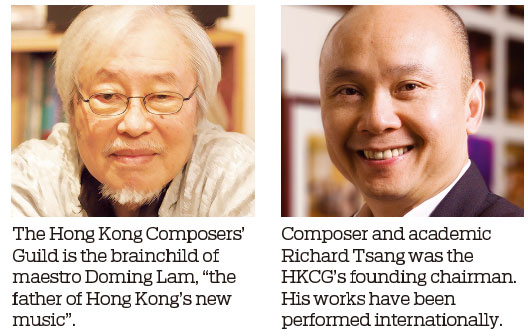
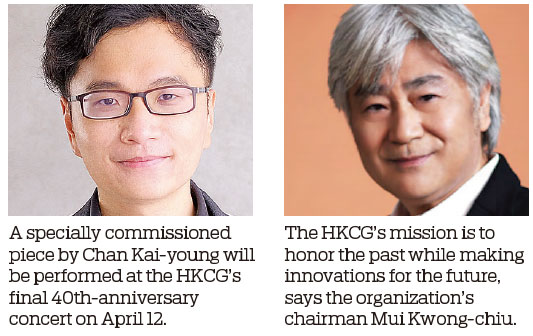
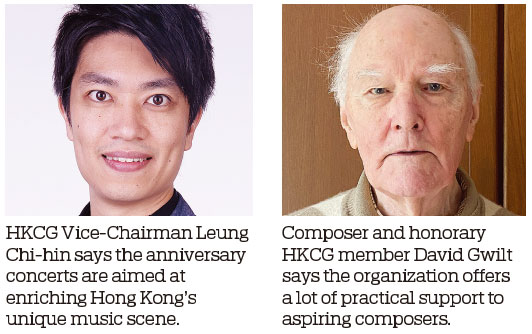
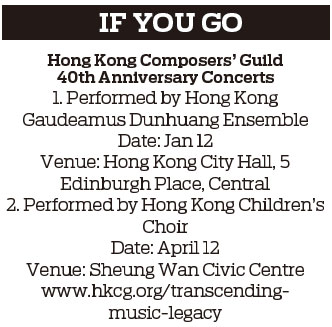
- Guangdong and Hong Kong universities sign agreement to cultivate talent
- 'A Thousand-Year Glance: Landscapes of Belt and Road countries in Thangka Paintings' exhibition held in Thailand
- China's top cyberspace regulator launches operation to combat illegal information
- Good quality water offshore reaches 85%
- Shenzhou XVIII completes in-orbit handover with Shenzhou XVII
- Serbian hooper finds second home in China
















